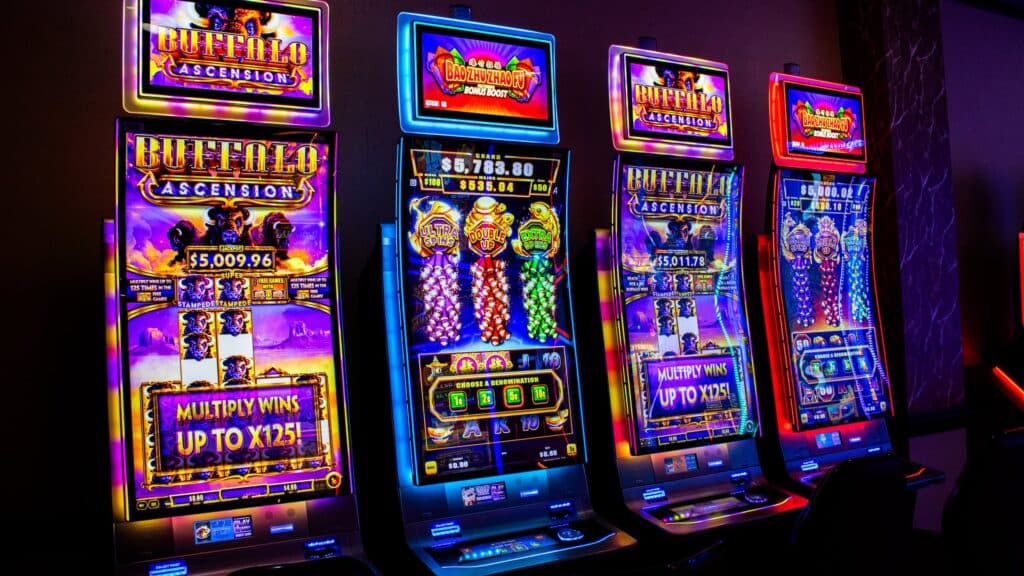Slot machines have long been a staple of the casino world, offering bright lights, engaging sounds, and the tantalizing possibility of life-changing jackpots. Whether you’re new to the world of slots or an experienced player, understanding the psychology behind slot machine gambling can greatly enhance your gaming experience. In this article, we’ll explore the various psychological factors that influence slot machine players, uncovering how these elements combine to make slots so captivating. We’ll also offer tips on how to approach slot gambling responsibly and improve your chances of success.
How Slot Machines Work: The Basics
Before diving into the psychological aspects, it’s essential to understand how slot machines operate. This knowledge lays the foundation for understanding why certain features of slots can trigger specific psychological responses in players.
Random Number Generators (RNG)
Modern slot machines use Random Number Generators (RNGs) to determine the outcome of each spin. The RNG generates random sequences of numbers, which are then translated into specific symbols on the screen. This ensures that every spin is independent, and the odds of winning or losing remain the same with each play. The unpredictability of the RNG is one of the key factors that contributes to the excitement of slot play.
Return to Player (RTP) and Volatility
Each slot machine is programmed with a specific Return to Player (RTP) percentage, which indicates the amount of money a machine is expected to pay back to players over time. For example, a slot with a 96% RTP will theoretically pay out $96 for every $100 wagered. Volatility, on the other hand, refers to the frequency and size of payouts. High-volatility slots offer fewer but larger wins, while low-volatility slots tend to pay out smaller, more frequent wins. Understanding these factors is essential for managing your expectations and strategy when playing slots.
The Psychological Appeal of Slot Machines
There’s a reason why slot machines are so popular, both in physical casinos and online. The psychology behind their design and operation is carefully crafted to keep players engaged, entertained, and coming back for more. Let’s take a deeper look at some of the key psychological elements that make slot machines so compelling.
1. The Thrill of the Unknown: Variable Reinforcement
One of the primary reasons slot machines are so addictive is the concept of variable reinforcement—a psychological principle that is the cornerstone of many gambling experiences. When you play a slot machine, the outcome of each spin is uncertain, and there’s no way to predict when you’ll hit a big win. This uncertainty creates a sense of excitement and anticipation, similar to the feeling of playing a game of chance.
In behavioral psychology, variable reinforcement is a strategy that involves rewarding a behavior at unpredictable intervals. This type of reinforcement has been shown to increase the frequency and intensity of the behavior. In the context of slots, players keep spinning the reels because they’re hoping for a reward, but they never know when it will come. This creates a cycle of anticipation and reinforces the behavior of continued play.
2. The “Near Miss” Effect
The “near miss” effect is a powerful psychological phenomenon that can make players feel like they’re just one step away from winning, even when they’ve lost. For example, if the symbols on a slot machine are almost aligned, but one symbol is off, players often perceive it as a near win. This can trigger a feeling of frustration combined with excitement, prompting the player to continue playing in the hopes of hitting that elusive jackpot.
Research has shown that near misses can increase the amount of time and money players spend on slot machines. When a near miss occurs, the brain experiences a sense of reward that encourages continued engagement. This creates a feedback loop where the player is drawn back to the machine, believing that they’re getting closer to a win, even though the odds haven’t changed.
3. Bright Lights and Sound Effects: Sensory Stimulation
Slot machines are designed to be visually and auditorily stimulating. The bright lights, flashing symbols, and celebratory sounds are all carefully designed to create a sensory experience that keeps players engaged. These sensory cues trigger positive emotions and reinforce the idea that playing is rewarding. When a player hits a win, the machine may light up, make loud sounds, and display celebratory animations. This adds to the excitement of the moment, creating a sense of satisfaction and encouraging players to continue playing.
4. Losses Disguised as Wins
Some slot machines are designed to give the impression that players are winning even when they’re losing money. This is often referred to as “losses disguised as wins.” For example, a machine may display a win message and trigger celebratory sounds when the player receives a small payout, even though the payout is less than their original bet. This can make players feel as if they’ve been rewarded, even though they haven’t made a profit. The illusion of winning, even if it’s not financially significant, can keep players engaged and playing longer than they might otherwise.
5. The Jackpot Fantasy
One of the biggest draws of slot machines is the chance to win a life-changing jackpot. Many slot machines feature progressive jackpots that increase as more players play, creating the allure of a massive payout that could change the player’s life. The psychological impact of the jackpot is profound: players often fantasize about winning big, imagining how the money would impact their lives.
While the odds of hitting a jackpot are typically very low, the possibility of winning remains a powerful motivator. The desire to hit the jackpot is what keeps many players coming back, despite the fact that the odds are stacked against them. This “dream of a big win” is a common psychological trap that keeps players engaged with the game.
Strategies for Managing the Psychological Effects of Slot Machine Gambling
While understanding the psychological factors at play in slot machine gambling can help explain why these games are so appealing, it’s also essential to approach slot play responsibly. Here are some strategies that can help you manage the psychological aspects of gambling and ensure that you enjoy slots without falling into unhealthy habits.
1. Set a Budget and Stick to It
One of the most important strategies for responsible gambling is setting a budget before you start playing. Determine how much money you’re willing to spend and stick to that amount, regardless of how the game unfolds. This will help you avoid chasing losses and prevent you from spending more money than you can afford.
2. Take Regular Breaks
It’s easy to get caught up in the excitement of slot machines, especially when you’re experiencing a near miss or hitting a few small wins. However, it’s important to take regular breaks to prevent burnout and maintain a clear perspective. Taking breaks allows you to step back, reassess your situation, and return to the game with a fresh mindset.
3. Know When to Walk Away
Many players continue to play even when they’re on a losing streak, convinced that a big win is just around the corner. However, it’s essential to recognize when it’s time to stop. Setting limits for yourself and walking away after hitting those limits will prevent you from losing more money than you intended.
4. Avoid Playing When Emotionally Compromised
Gambling, including slot machine play, can become problematic when driven by emotions like stress, boredom, or frustration. If you’re feeling emotionally compromised, it’s best to avoid playing. Emotional gambling often leads to poor decision-making and excessive losses. Taking a break and engaging in other activities can help you clear your mind and return to the game with a more rational approach.
Conclusion: The Allure and Pitfalls of Slot Machines
Slot machines are more than just games of chance—they are carefully designed experiences that play on our psychological desires and emotions. The thrill of the unknown, the near miss effect, sensory stimulation, and the jackpot fantasy all contribute to the allure of slots. However, it’s essential to understand these psychological factors in order to approach slot machine gambling responsibly.
By setting limits, taking breaks, and being aware of the psychological traps that can lead to problem gambling, you can enjoy slot machines without falling prey to their potentially addictive elements. Remember, gambling should always be a form of entertainment, not a way to make money. Approach the game with caution, and you can enjoy the excitement of slots while maintaining control over your gambling habits.



